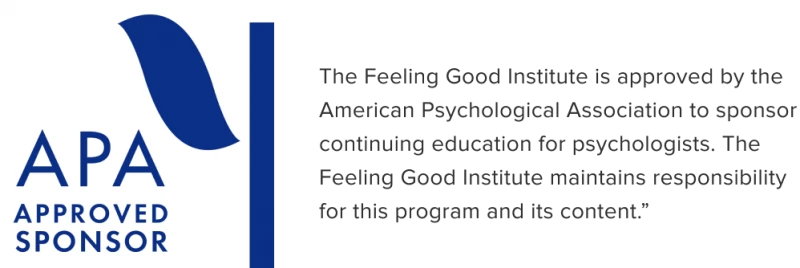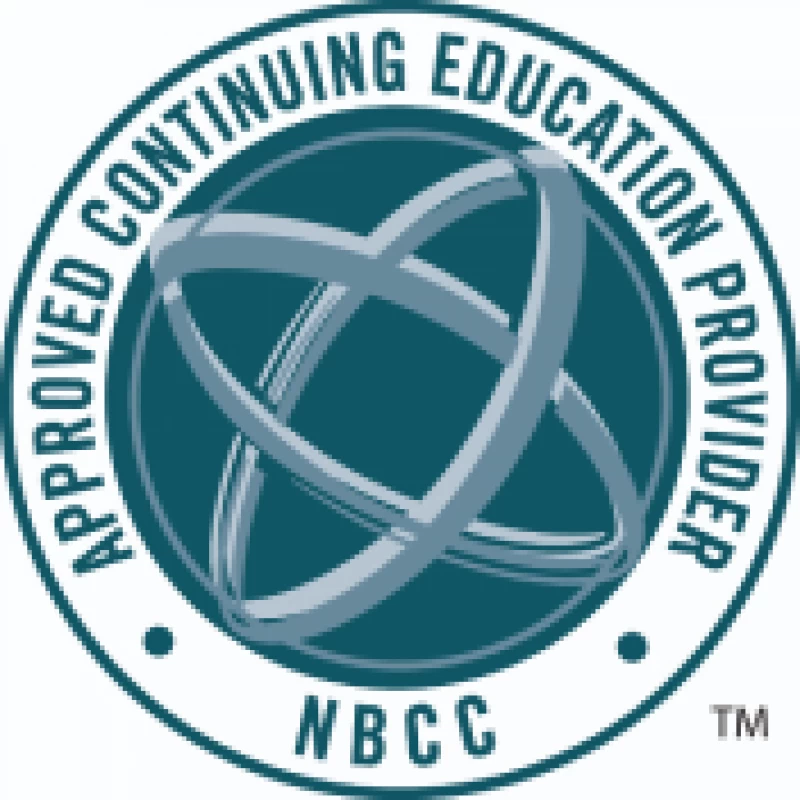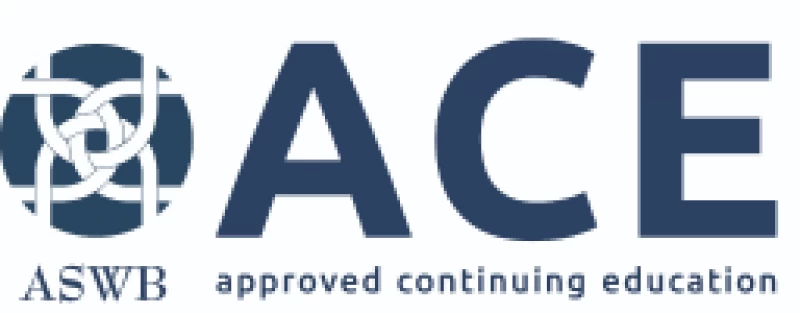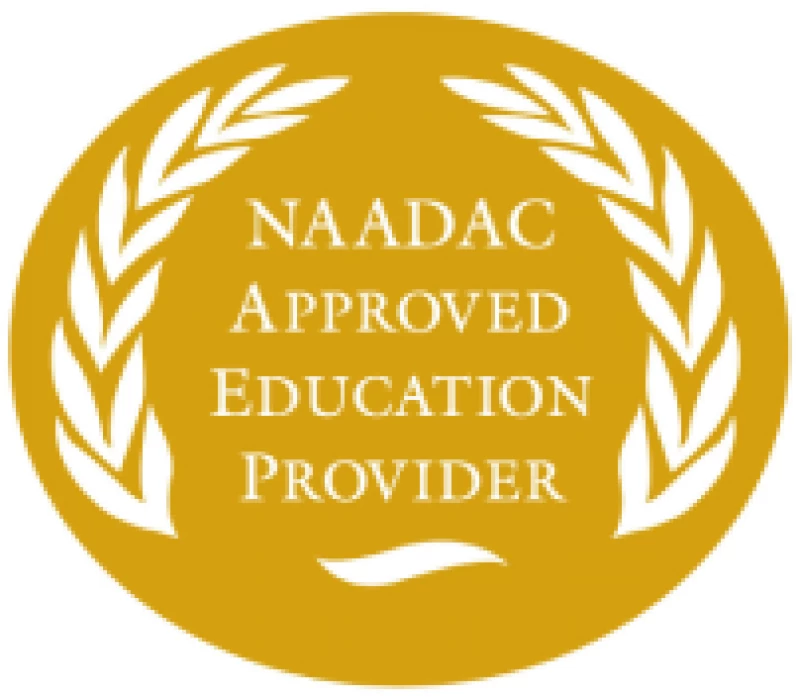Start With The Core Skills For Effective Therapy
Learn and practice the essential therapy techniques master therapists use to get fast and lasting results for their patients in one on-demand course. Earn 11 CE’s, access free practice groups, and become TEAM-CBT certified.
Interested In Other Trainings?
From 1-hr free webinars that will introduce you to CBT skills, to 12 week comprehensive CBT courses, to on-going advanced training and consultation CBT groups through the popular TEAM-CBT Level 1-3 Certification Accelerator Training Package and more
Accredited by top organizations to provide advanced psychotherapy training




Feeling Good Institute Trainings
- Beginner
- Intermediate
- Advanced
- All Levels
Core Skills for Effective Therapy
Core Skills for Effective Therapy is a video-based, on-demand course that distills the best CBT therapy skills developed over three decades by Dr. David Burns. In this course, you will learn and practice the essential therapy techniques master therapists use to get effective results for their patients, earn 11 CE’s and become TEAM-CBT certified. Plus, you'll have access to a free weekly practice group for 6 months from the date of purchase of this course.
On-demand course
- 11 CE Hours
- 12 Certification Units
Level 1 Certification Included
Home-study
Advanced CBT for Depression and Anxiety with Dr. David Burns - An Intensive Workshop for Therapists
Join us for an unparalleled 3.5-day intensive workshop for therapists with Drs. David Burns and Jill Levitt in South San Francisco this August. Designed to help you become a better therapist, this workshop offers: Direct Learning from Experts: Learn from Dr. David Burns in his first in-person training in five years to master cutting-edge CBT techniques. Hands-On Experience: Participate in lectures, group exercises, live demonstrations, and receive personal coaching to improve your practice immediately. Transformative Growth: Apply new techniques in real-time, gain practical insights, and overcome personal and professional hurdles for profound professional and personal development. Limited spots available. Register now for this unique opportunity!
Daylong live online workshop
August 8 -11, 2024
Comprehensive Live Online CBT Training for Therapists Fall 2024
This comprehensive 13-week (includes a mandatory intro meeting) CBT course uses a combination of live group didactic sessions together with practice and role play, with emphasis on skill building of therapy tools and techniques for better CBT.
Multi-week live online course
- 26 CE Hours
- 26 Certification Units
Sept. 10, 2024
CBT w/ Children & Adolescents Monthly Online Consultation Group with Taylor Chesney
This group is focused on training therapists working with children and adolescents
Consultation group
- NO CE Hours
- 1.5 / 3mtgs Certification Units
Last Wednesday of the month
How to Use Exposure to Enhance the Treatment of Anxiety Consultation Group
This is a monthly training and consultation group for therapists working with individuals who have anxiety disorders. Consultation will focus on assessment, treating planning, and implementing effective exposures.
Consultation group
- NO CE Hours
- 1.5 / 3 mtgs Certification Units
3rd Friday of the month
Free Webinars
Check out our free webinars with the latest techniques and best practices. We are always adding more webinars so keep this page bookmarked.
External Trainings
Additional TEAM-CBT trainings offered by Level 3 or above Advanced TEAM-CBT Therapists & Trainers. Eligible for TEAM-CBT credits. May not offer CE credits.
Fast Track to Level 3 Advanced TEAM-CBT Therapist Certification
Advance from Level 1 to Level 3 TEAM-CBT Certification in only five months. This course incorporates 15 hours of at-home study plus 25 weeks of live online practice group meetings using the Deliberate Practice model for mastering CBT skills. It is designed for Level 1 TEAM-CBT Certified therapists who are committed to advancing their skills quickly and cost effectively for rapid progress and efficient patient outcomes!
Multi-week live online course
- 41 CE Hours
- 41 Certification Units
Weekly - Starts June 3, 2024 through Dec. 6, 2024
Weekly - Starts June 3, 2024 through December 6, 2024
Free Webinars
Check out our free webinars with the latest techniques and best practices. We are always adding more webinars so keep this page bookmarked.
External Trainings
Additional TEAM-CBT trainings offered by Level 3 or above Advanced TEAM-CBT Therapists & Trainers. Eligible for TEAM-CBT credits. May not offer CE credits.
Free Webinars
Check out our free webinars with the latest techniques and best practices. We are always adding more webinars so keep this page bookmarked.
External Trainings
Additional TEAM-CBT trainings offered by Level 3 or above Advanced TEAM-CBT Therapists & Trainers. Eligible for TEAM-CBT credits. May not offer CE credits.
Core Skills for Effective Therapy
Core Skills for Effective Therapy is a video-based, on-demand course that distills the best CBT therapy skills developed over three decades by Dr. David Burns. In this course, you will learn and practice the essential therapy techniques master therapists use to get effective results for their patients, earn 11 CE’s and become TEAM-CBT certified. Plus, you'll have access to a free weekly practice group for 6 months from the date of purchase of this course.
On-demand course
- 11 CE Hours
- 12 Certification Units
Level 1 Certification Included
Home-study
Advanced CBT for Depression and Anxiety with Dr. David Burns - An Intensive Workshop for Therapists
Join us for an unparalleled 3.5-day intensive workshop for therapists with Drs. David Burns and Jill Levitt in South San Francisco this August. Designed to help you become a better therapist, this workshop offers: Direct Learning from Experts: Learn from Dr. David Burns in his first in-person training in five years to master cutting-edge CBT techniques. Hands-On Experience: Participate in lectures, group exercises, live demonstrations, and receive personal coaching to improve your practice immediately. Transformative Growth: Apply new techniques in real-time, gain practical insights, and overcome personal and professional hurdles for profound professional and personal development. Limited spots available. Register now for this unique opportunity!
Daylong live online workshop
August 8 -11, 2024
Fast Track to Level 3 Advanced TEAM-CBT Therapist Certification
Advance from Level 1 to Level 3 TEAM-CBT Certification in only five months. This course incorporates 15 hours of at-home study plus 25 weeks of live online practice group meetings using the Deliberate Practice model for mastering CBT skills. It is designed for Level 1 TEAM-CBT Certified therapists who are committed to advancing their skills quickly and cost effectively for rapid progress and efficient patient outcomes!
Multi-week live online course
- 41 CE Hours
- 41 Certification Units
Weekly - Starts June 3, 2024 through Dec. 6, 2024
Weekly - Starts June 3, 2024 through December 6, 2024
Comprehensive Live Online CBT Training for Therapists Fall 2024
This comprehensive 13-week (includes a mandatory intro meeting) CBT course uses a combination of live group didactic sessions together with practice and role play, with emphasis on skill building of therapy tools and techniques for better CBT.
Multi-week live online course
- 26 CE Hours
- 26 Certification Units
Sept. 10, 2024
CBT w/ Children & Adolescents Monthly Online Consultation Group with Taylor Chesney
This group is focused on training therapists working with children and adolescents
Consultation group
- NO CE Hours
- 1.5 / 3mtgs Certification Units
Last Wednesday of the month
How to Use Exposure to Enhance the Treatment of Anxiety Consultation Group
This is a monthly training and consultation group for therapists working with individuals who have anxiety disorders. Consultation will focus on assessment, treating planning, and implementing effective exposures.
Consultation group
- NO CE Hours
- 1.5 / 3 mtgs Certification Units
3rd Friday of the month
Free Webinars
Check out our free webinars with the latest techniques and best practices. We are always adding more webinars so keep this page bookmarked.
External Trainings
Additional TEAM-CBT trainings offered by Level 3 or above Advanced TEAM-CBT Therapists & Trainers. Eligible for TEAM-CBT credits. May not offer CE credits.
Take the next step
Take the Core Skills for Effective Therapy On-Demand course. Earn 11 CEs, become TEAM-CBT Level 1 certified and join our community.